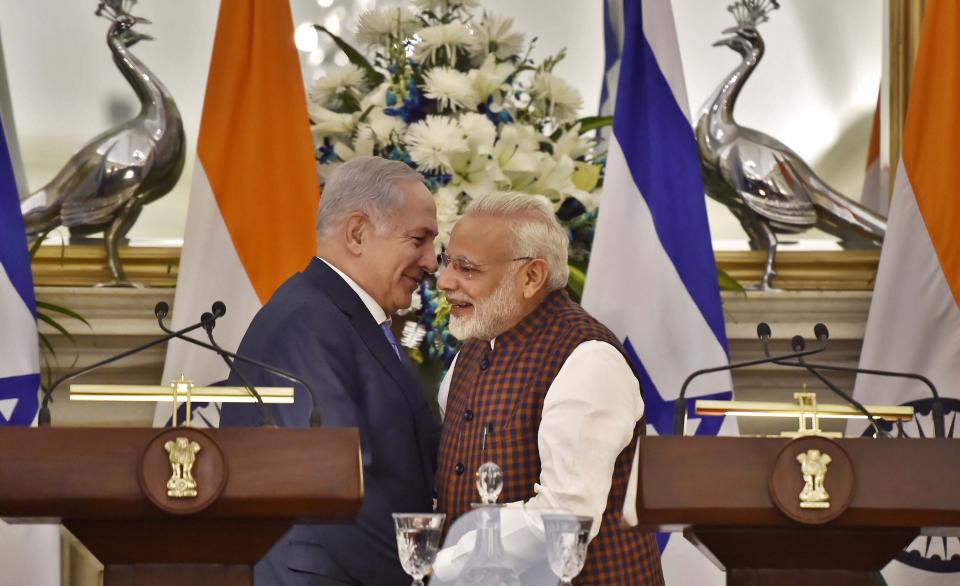In an apparent break with tradition, Indian Prime Minister Narendra Modi has given his Israeli counterpart a warmer-than-expected reception, a Chinese political expert says.
India recently spoke out against a controversial US move to recognize Jerusalem as the Israeli capital, and Netanyahu’s visit is seen as a rather pragmatic one which is expected to enhance the two nations' relationship, according to Wang Jin, a Ph.D. candidate of politics at the University of Haifa in Israel, writing for The Paper.
Successive Indian governments have traditionally kept diplomatic relations with Israel rather low key so as not to provoke a hostile reaction from Palestinians, the broader Arab World, and particularly the more than 100 million Muslims living in India, Wang explains.
In July of last year Modi became first Indian leader to visit Israel since the two countries commenced diplomatic relations in 1992 – a daring move, Wang says. By making a public show of India's tie with Israel, Modi has apparently chosen to disregard pressure from India's Muslims, he says.
In the past three decades, India and Israel have expanded their cooperation to anti-terrorism, intelligence-sharing, agriculture and, significantly, the military – with India now Israel’s largest arms buyer. Netanyahu is expected to promote the sale of a late-model Israeli-produced antitank missile while in India, Wang says.
Given an ongoing corruption scandal within his own country, Netanyahu also hopes to improve his image among the Israeli public, Wang adds.

 Old Version
Old Version